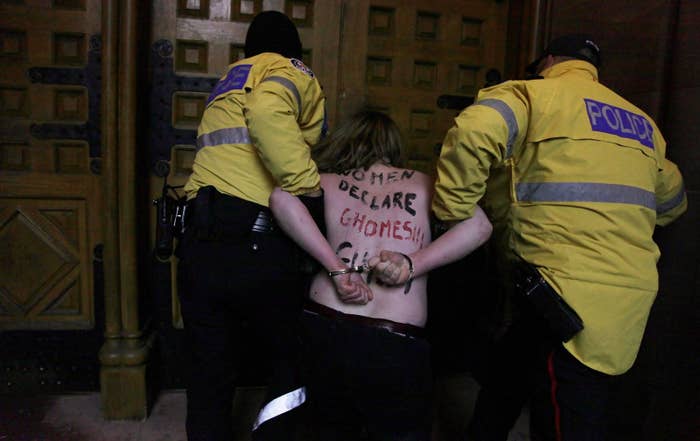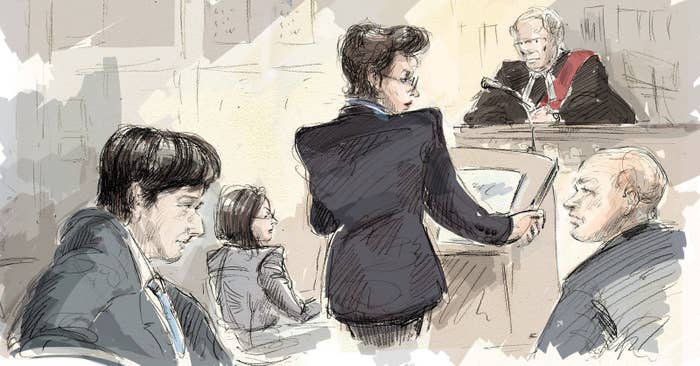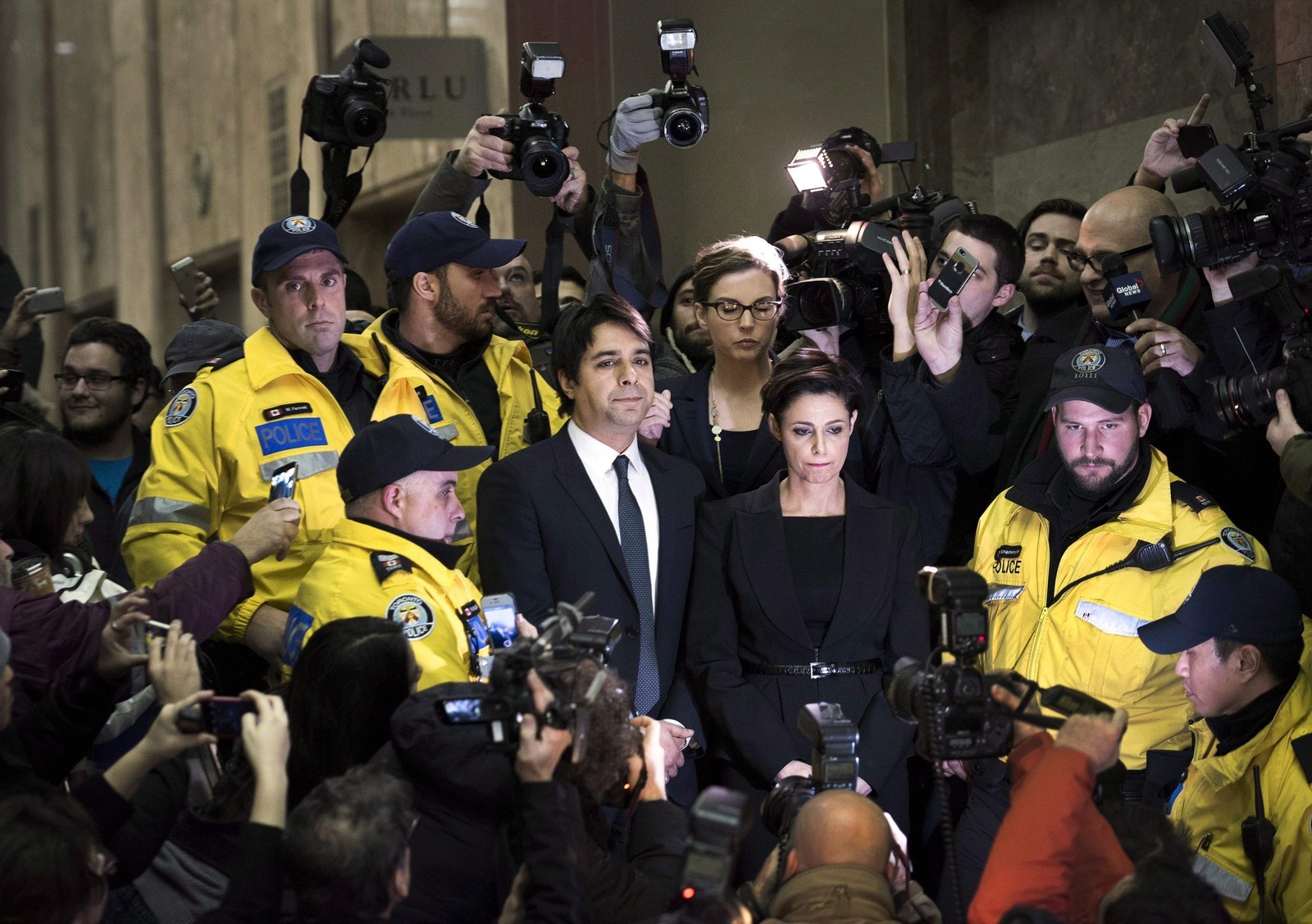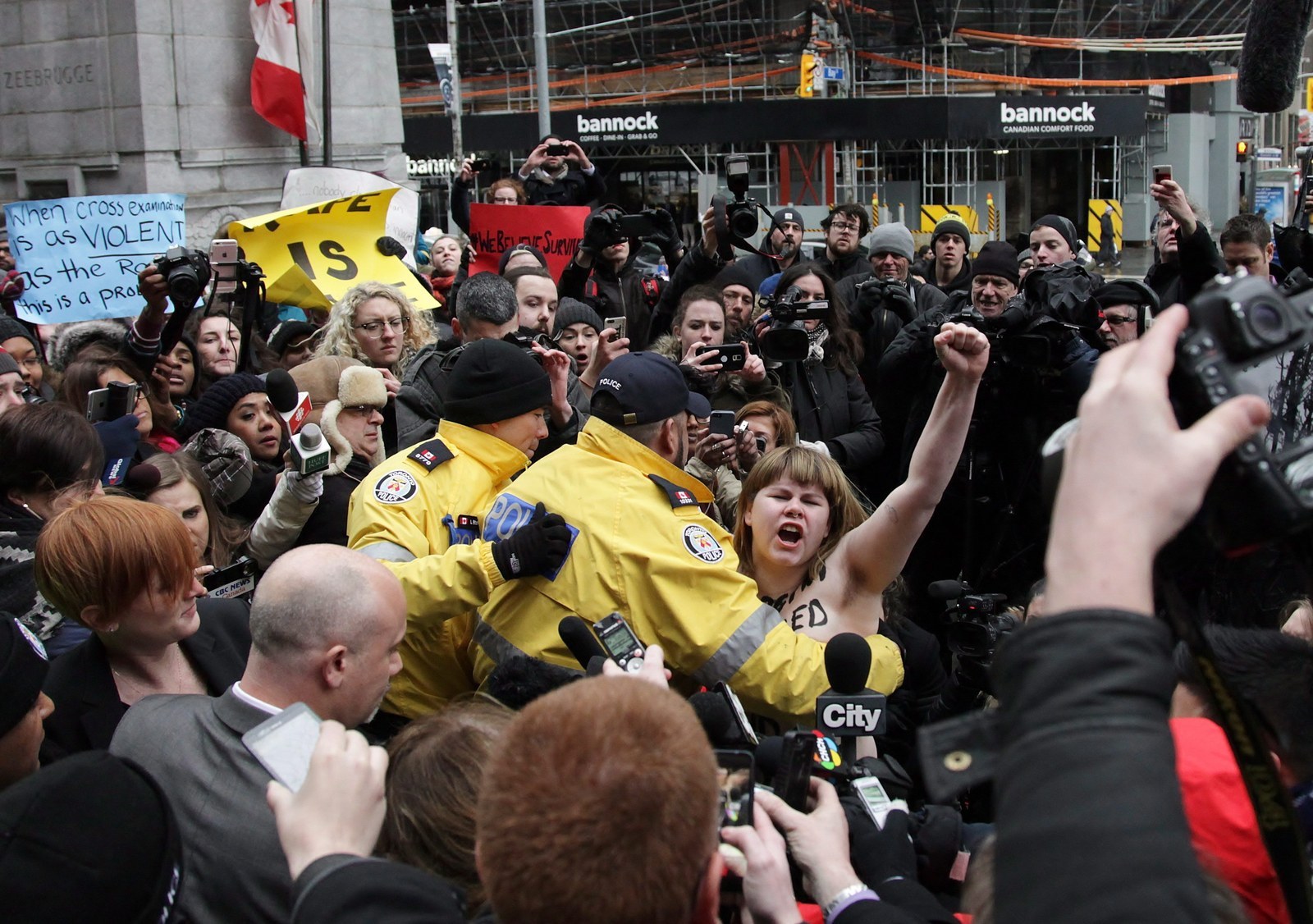
Today is a bad day.
Today is also a perfectly distilled example of why you should be humming at a hyper-state of rage, almost constantly. You should be angry. You are allowed to be angry. Everyone let you down today. The Jian Ghomeshi verdict wasn’t surprising—sexual assault survivors are rarely heard by the justice system, and worse, the Crown botched the case entirely. Still, the way in which the verdict was read by Justice William Horkins told any assault survivor, and women in particular, that your story doesn’t matter. He read for around an hour, barely touching on the allegations against Ghomeshi and instead, spending most of his time going over the inconsistencies in the survivor statements. Judging by the tweets coming out of the courtroom in those first few minutes, we knew we were in for bad news.
“The twists and turns of the complainants' evidence in this trial,” he said at one point, “illustrate the need to be vigilant in avoiding the equally dangerous false assumption that sexual assault complainants are always truthful.” If there are any inconsistencies, if you can’t remember something that happened a decade ago, if you get confused or if you are manipulated or if the circumstances do not paint you as a shrinking, melting, dying violet at all times, you will not be believed. Your body doesn’t matter, your feelings are worthless, and no one will believe you.
Ghomeshi was on trial for five counts of sexual assault for incidents that allegedly occurred between 2002 and 2003. Everything seemed foggy, right from the start: Ghomeshi’s lawyer once (successfully) defended Michael Bryant, the judge on the case has a bad record with sexual assault complainants, and there was more discussion about why the women stayed in contact with Ghomeshi than whether it was reasonable to think a group of strangers bound together to take down a Canadian radio host.

Women, and girls, and anyone who has ever had someone take a piece of their life away through sexual violence or harassment, knew the verdict wasn’t going to go our way because the system wasn’t even built for us. It was built for the men it protects, the ones we try to expose. Men who are accused of assault get a fair trial, but the women who accuse them are the ones who actually have to fight to protect their reputations. Who could have predicted that the judge in this case was actually a cartoon sheriff from the ‘50s? Despite the fact that there are countless ways to describe and demonstrate reasonable doubt when reading a verdict—you could literally just say “not a ton of proof in either direction” and we would all go home with less venom in our veins—Judge Horkins decided that the focus should be around the complainants and not the man who is actually on trial.
Throughout his verdict, he detailed the confusion around timelines, the positioning of people’s hands, the deviations in stories that arise when you try to recall a decade-old traumatic experience. Every debunked stereotype people still seem to believe about sexual assault complainants, this judge trotted out: why did Lucy DeCoutere write to Ghomeshi after her alleged assault? (The rest of us, meanwhile, were asking, how does that fucking matter??)
You were failed, and you should be mad. After the allegations were first made public, we talked a lot about watershed moments, about this changing everything, and we know now for sure that was all a fallacy. Of course nothing changed right after because nothing in the world works that fast. When it comes to victim blaming in particular, it’s a slow shift. It took us decades to appreciate that raping your wife was actually a crime; imagine how long it will take us to overturn the bullshit the general population believes about women who say they’ve been assaulted.

I have tried talking about this particular topic in every imaginable tone, and I assume you have too. I’ve been calm and tried to offer concrete explanations for why this kind of dismissive dialogue and reaction to survivors is detrimental. I’ve done it for myself and I’ve done it for women I don’t know. I’ve done it when I was in university and my friends were hurt and I had to tell them that, yes, the world would not take care of them the way we hoped. I had to explain it to teachers who ignored signs of PTSD in their female students, who ignored me when I said I needed help. I tried to do it on the internet with mouthy Twitter eggs who want to talk about “facts versus feelings.” Being reasoned and academic doesn’t work, at least it didn’t for me; the walls just closed in that much more.
So instead, I tried to drain myself of that endless trove of sorrow to explain how brushing off the testimonies of survivors invalidates us, tells us we’re lying, that we’re only here for attention. That hasn’t worked either. So all I have is rage, inarticulate, uncut, unfiltered rage.
A not-guilty verdict was expected as soon as the trial started in earnest, and so many of us knew that from the beginning. The Crown fucked up so deeply, day after day, it was like they barely spoke to any of the women on the stand. We covered the case like a Law & Order episode, detaching ourselves from very real emotional and physical female trauma. The courts and the judicial system let the things we know not to be true about sexual assault—that there is a “right” way to act after you’re assaulted, that women never contact their alleged abusers, that they would never consider trying to find normalcy by moving on, and fast—take control over the narrative of the case.
In the next few days and weeks, and even moreso during Ghomeshi’s upcoming, separate trial for sexual assault in June, we’re going to read and talk a lot about what this case means. It’s important to talk about this, because this case means something. (For now, it means that the courts don’t give a shit, but maybe one day that’ll feel different.) We’ll talk about what it means from a legal perspective, we’ll talk about whether Ghomeshi can ever have another day in the sun (I REFUSE), we’ll talk about consent (I hope) and what it means to exist as a woman in the world. But we won’t talk too much about rage.

But I hope you’re fucking furious. If you’re not, I hope you find a way to your rage, because I think it can help you here. Cut off friends who think those women lied, lecture your parents if they don’t understand rape culture, talk to your co-workers about this flaming dog-shit day and how it could happen to any of you. Let your body crack wide open and fill the world with your anger because anger gets shit done. Male anger is turned against women and our heads are smashed against walls and our bodies are shaken and bruised; female anger activates and shoots up into the sun and forces change. Fuck this system that doesn’t give a shit about you even when you do the very thing it tells you to do: Come forward so we can drag you through dirt and glass and hell on earth.
So much of this case was a disappointment, yes. It proved how many people buy into rape culture myths, how many people are willing to take a not guilty verdict as akin to innocence, how many conflate being found criminally not guilty with not having done the thing you were accused of doing. But maybe it led you to some people who understood you, who knew what was happening to you. I hope you found someone who you could talk to and who believes you. I hope you spend some time with those people.
But above all, I hope you are angry today, that you’re connected to that feeling, that it makes you feel stronger. Be angry until everyone else gets on board and is angry with you. Be angry until the world gives a shit about you.
